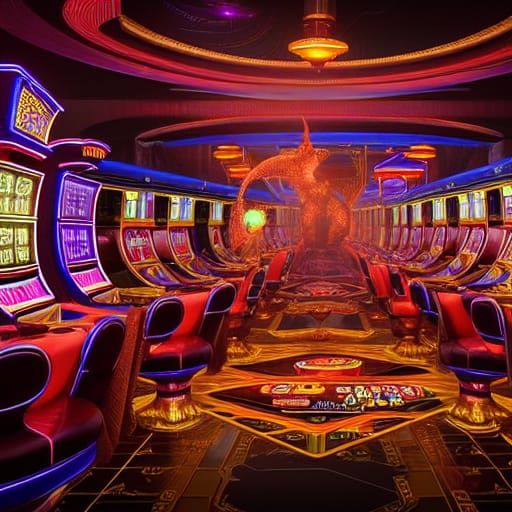
The Emotional Impact Of Wins And Losses
Stepping into the world of casinos, whether physical or online, instantly carries a unique charge of energy. People are chasing hope, thrills, and maybe even a quick dream. While winning can feel euphoric and empowering, losing tends to trigger self-reflection, frustration, or a quiet sort of resignation. On platforms like baji bet, that pendulum between joy and disappointment becomes especially visible as players navigate through games, promotions, and the constant rush of possibility.
What makes these emotional swings interesting is how differently they manifest among individuals. For some, the smallest win, even just enough to cover the initial wager, sparks celebration. For others, only a significant jackpot seems to move the needle. This diversity of reactions means that the experience of playing goes way beyond the mechanics of spinning reels or placing a bet.
Expectations And The Reality Of Casino Play
People often step into a casino with mixed expectations. Part of the mind whispers logically about probability, while another part can’t help but expect fortune to land. Wins feel natural, almost deserved. Losses, on the other hand, usually feel heavier than they should, as though luck itself turned away unfairly. This uneven balance of emotion adds depth to every game session.

To understand this better, imagine trying a slot machine for the first time. The upbeat sounds, the colors, and the animations can make tiny wins feel disproportionately big. But consecutive spins without much payoff? They tend to chip away at enthusiasm surprisingly fast. Perhaps it’s this tug-of-war that keeps people glued to their screens or seats.
Psychology Behind Winning And Losing
Human psychology plays a central role in gambling experiences. Winning releases dopamine, the “feel-good” chemical, and losing can trigger stress or even a sense of injustice. This contrast can shape not just the individual game session but the overall impression of the platform.
There are a few underlying psychological factors that frequently emerge:
- Optimism bias makes people believe they are “due” for a win after losses.
- Escalation of commitment can lead to chasing losses.
- The near-miss effect makes players feel close to winning, encouraging longer play sessions.
The Role Of Bonuses And Promotions
Online casinos in particular have become expert at managing the emotions attached to wins and losses. Loyalty bonuses, welcome packages, and special promotions soften the blow of losing or amplify the joy of winning. They essentially extend the emotional narrative of play, drawing people back in time and again.
Take, for example, the different promotions and how they affect players emotionally:
| Promotion Type | Emotional Impact |
| Welcome Bonus | Creates excitement, gives a sense of value at the start. |
| Cashback Offer | Softens the disappointment of losses. |
| Free Spins | Encourages testing new slots with hopeful anticipation. |
Player Rituals And Reactions
Anyone who has played long enough knows that rituals, even superstitions, often creep into the routine. For instance, some players talk to the slot screen as if persuading it, while others might quietly repeat the same staking pattern, certain it will yield results. These rituals provide comfort more than evidence, but emotionally, they matter a lot.
Lists can reveal just how common these rituals are:
- Choosing “lucky” numbers at the roulette table.
- Playing slots only at specific times of the day.
- Touching the screen before pressing spin.
And these actions, while detached from logical influence, have very real emotional effects. For many, they create hope that feels tangible. For others, a lack of ritual almost creates anxiety.
Even the reactions to winning and losing differ widely, and they can be grouped loosely into categories:
| Reaction Type | Typical Behavior |
| Joyful Win | Sharing screenshots, loud celebrations, instant reinvestment. |
| Quiet Loss | Closing the tab in silence, reluctance to discuss the experience. |
| Chasing Losses | Placing higher bets quickly in hope of recovery. |
And here is where the psychology links tightly to emotion. Winning can make players feel invincible for a while, and losing can carve out a hollow space that little rituals temporarily fill.
Financial Ups And Downs
Money management also cannot be ignored. The emotional burden intensifies when personal finances directly intersect the experience. Small gambling sessions can stay lighthearted, but a longer streak of losses risks tipping into unease. Conversely, even modest winnings give relief, proving effort wasn’t wasted.
To illustrate financial aspects briefly:
- Deposit convenience reassures players of ongoing control.
- Fast withdrawal gives a powerful sense of reward realization.
- Hidden fees or delayed payments quickly sour emotions.
| Payment Factor | Emotional Result |
| Instant Deposits | Encourages spontaneous engagement. |
| Fast Withdrawals | Strengthens trust and creates satisfaction. |
| Delayed Payments | Leaks frustration and doubt into player emotions. |
FAQ
- Do wins feel disproportionately satisfying compared to their monetary value? – They often do, especially due to music, lights, and dopamine response in the brain.
- Are losses more impactful emotionally? – For many players, yes, because disappointment lingers longer than joy.
- Do bonuses change player feelings? – Definitely, bonuses dilute the sting of losing and give extra reason to stay engaged.
- Do rituals affect actual odds? – No, but they help players maintain a comfort zone emotionally.

